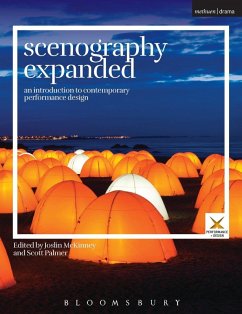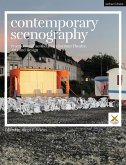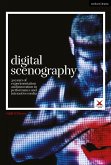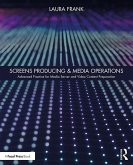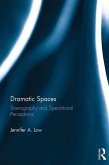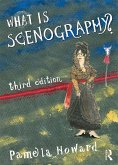Shortlisted for the 2019 TaPRA Edited Collection Prize
Scenography Expanded is a foundational text offering readers a thorough introduction to contemporary performance design, both in and beyond the theatre. It examines the potential of the visual, spatial, technological, material and environmental aspects of performance to shape performative encounters. It analyses examples of scenography as sites of imaginative exchange and transformative experience and it discusses the social, political and ethical dimensions of performance design. The international range of contributors and case studies provide clear perspectives on why scenographic design has become a central consideration for performance makers today.
The extended introduction defines the characteristics of 21st-century scenography and examines the scope and potentials of this new field. Across five sections, the volume provides examples and case studies which richly illustrate the scope of contemporary scenographic practice and which analyse the various ways in which it is used in global cultural contexts. These include mainstream theatre practice, experimental theatre, installation and live art, performance in the city, large-scale events and popular entertainments, and performances by and for specific communities.
Scenography Expanded is a foundational text offering readers a thorough introduction to contemporary performance design, both in and beyond the theatre. It examines the potential of the visual, spatial, technological, material and environmental aspects of performance to shape performative encounters. It analyses examples of scenography as sites of imaginative exchange and transformative experience and it discusses the social, political and ethical dimensions of performance design. The international range of contributors and case studies provide clear perspectives on why scenographic design has become a central consideration for performance makers today.
The extended introduction defines the characteristics of 21st-century scenography and examines the scope and potentials of this new field. Across five sections, the volume provides examples and case studies which richly illustrate the scope of contemporary scenographic practice and which analyse the various ways in which it is used in global cultural contexts. These include mainstream theatre practice, experimental theatre, installation and live art, performance in the city, large-scale events and popular entertainments, and performances by and for specific communities.

